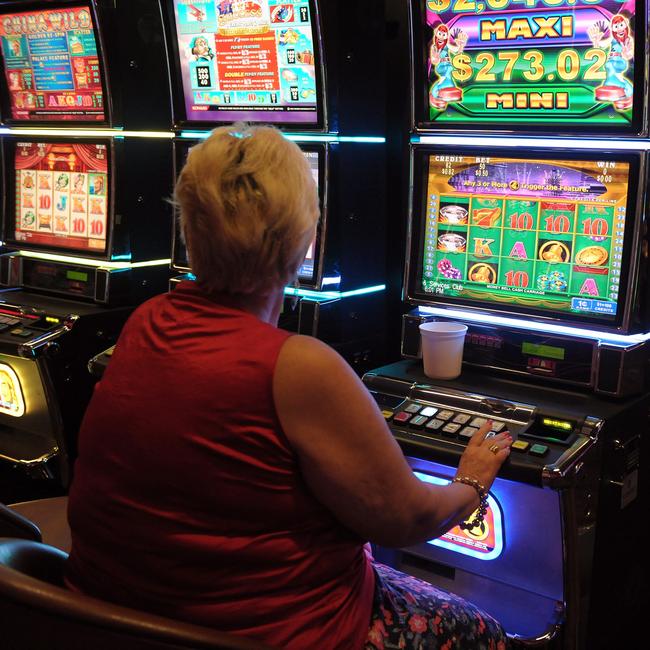Australia Institute discussion paper argues cases against pokies as hospitality industry, government defend right to gamble
On Friday, poker machines will be switched back on after three months of being out of action, but the argument over their social and economic impact continues.
Tasmania
Don't miss out on the headlines from Tasmania. Followed categories will be added to My News.
TASMANIAN casinos and gaming rooms will reopen on Friday for the first time in three months — but it will be far from business as usual.
Only every second poker machine will be operating, and a team of cleaners will sanitise machines after each customer.
Federal Group’s executive general manager Daniel Hanna said the group’s casinos and pubs had been working to implement changes to make them COVID-safe.
With eased restrictions enabling them to reopen, Dr Hanna said venues had put up new coronavirus-related signage and staff had completed safety training.
“It’s been a long three months, and our teams very much look forward to welcoming guests back when restrictions lift on Friday,’’ he said.
“Things like gaming, accommodation, events and a lot of our restaurants rely on interstate visitors, so we need the borders open before they’re fully operational.”

The imminent reopening of gaming venues after the shutdown in March comes amid debate on whether poker machines should be switched back on at all.
Independent MLC Meg Webb argued on Tuesday they should be left off, with Premier Peter Gutwein firmly rejecting the idea and accusing Ms Webb of wanting a “nanny state”.
Ms Webb said Tasmanians had saved more than $42 million in gambling losses since COVID-19 restrictions closed pokies venues on March 23, a figure confirmed by a new discussion paper by the The Australia Institute titled “Tasmania can’t afford a bet on the pokies”.
Director Leanne Minshull said those savings could have created almost 400 jobs in food and accommodation or more than 420 in health care and social services — and argued pokies were a drain on the economy.
Ms Minshull said it was not possible to track how much of the $42 million may have been redirected to online gambling during the period.
Dr Hanna said recent AlphaBeta research had shown the rate of online gambling in Australia had jumped 130 per cent during the pandemic.
“While regulated venues like pubs and casinos were forced to shut, some people have moved to online gambling platforms, many of which are unregulated or operate with far less safety nets than Tasmanian gaming venues,’’ he said.
Tasmanian Hospitality Association CEO Steve Old said gaming was a legal form of entertainment in those venues that choose to have it.


